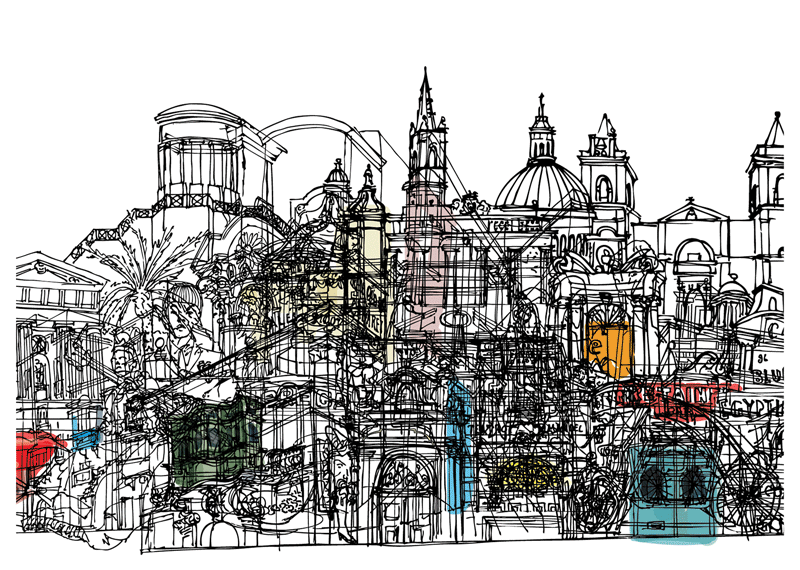Valletta will be the European Capital of Culture in 2018 and has served as the centre of multiculturalism in Malta since its beginning. Built soon after the victory of the Hospitaller Order of St John over the Ottoman Empire in 1565, it meant to serve as their Fortress Convent. The knights came from all over Europe and helped attract people from all lifestyles. Valletta had a cosmopolitan atmosphere that impressed itself on the character of the city helping to enrich the country especially in creativity. The Order of St John managed to establish a ruling system which seeped down the social scale and gave character to the Harbour area. The cultural magnetism of the City was underlined by its political centrality. Functioning as an administrative capital, Valletta determined the fashions and values of the Grand Master’s court. Similar to early modern European capitals, Valletta was a powerhouse of cultural change.
British rule in the 19th century introduced new cultural elements with an Anglo-Saxon tone. The Royal Navy and the numerous other ships that anchored in Valletta’s adjacent harbours poured in many foreigners who came for short or long stays and mingled with the locals. This made Valletta a melting pot of nations, cultures, tastes, values and mentalities. Yet novelties did not manage to destroy or replace what had already been entrenched in the life and fabric of the city. All it did was enrich it further. The city put on a new dress but did not renounce its soul, and the residents adapted to the new trends without forgetting their roots.
Valletta continued to grow in its multicultural mentality, a natural process for a central Mediterranean city. It is an administrative and cultural centre. Over five centuries, people from different cultural environments have thrived and lived harmoniously together.





Comments are closed for this article!